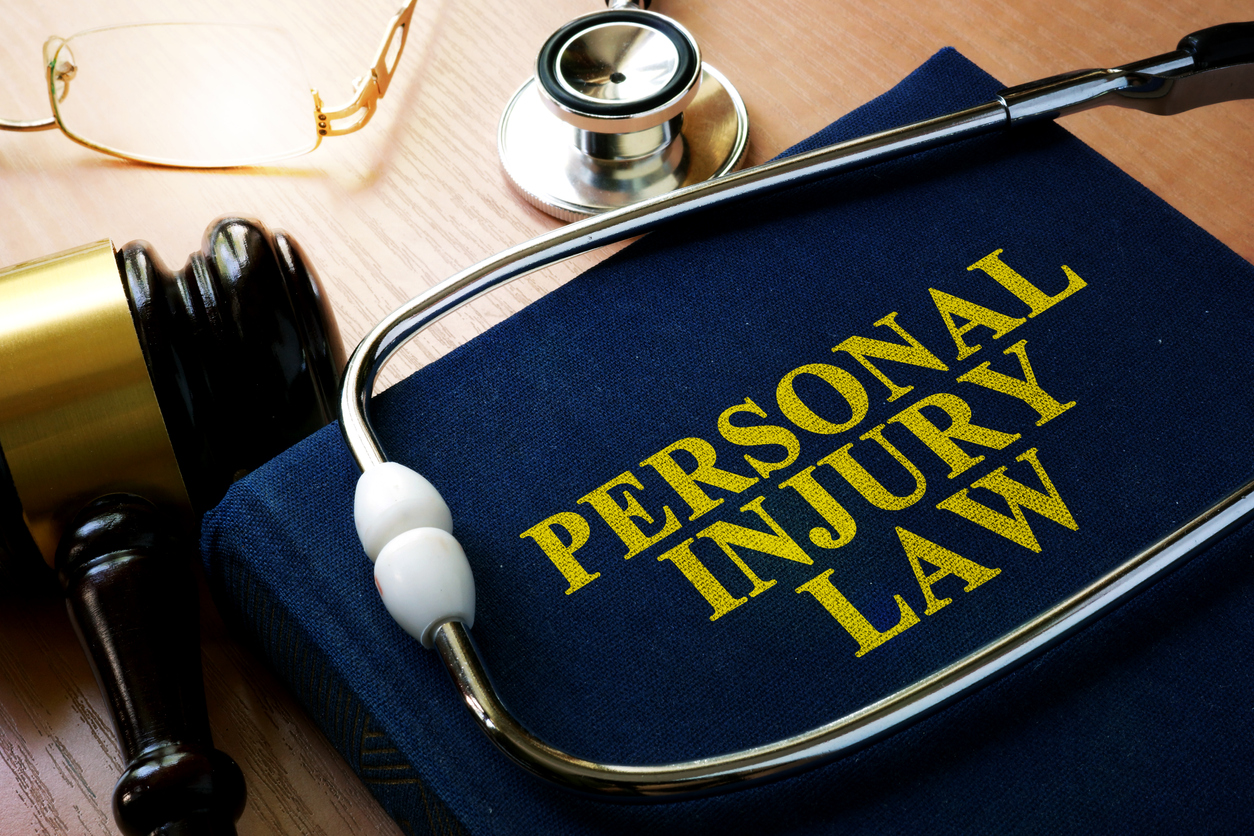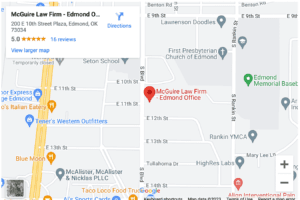Liability Attorney in Oklahoma City

Liability refers to a legally enforceable claim against another party’s assets or property. In personal injury cases, liability refers to a party’s responsibility for causing harm to an individual. The at-fault party is “liable” or responsible for compensating the victim for injuries and damages.
Four Different Theories of Liability for Personal Injury Claims

Most personal injury liability claims are based on negligence. However, three other types of liability are available to recover compensation for a personal injury claim.
Negligence
Negligence is the basis of most personal injury cases filed in Oklahoma City. It is the basis for claims related to car accidents, truck accidents, slip and falls, medical malpractice, and many other claims.
A negligence claim requires you to prove:
- Duty – The person or entity owed you a duty of care;
- Breach of Duty – The at-fault party breached the duty of care;
- Causation – The breach of duty was the proximate and direct cause of your injury; and
- Damages – You sustained damages because of the breach of duty.
You have the burden of proving each of the above legal elements before you can recover compensation for a negligence claim.
Whether a person breached their duty of care generally relies on the “reasonable person” standard. A jury decides what a “reasonable person” would have done in a similar situation. The jury then compares the defendant’s conduct to the reasonable person standard. If the defendant’s actions fell short, they breached the duty of care.
In medical malpractice cases, you must establish the standard of care used in similar situations and prove that the doctor failed to meet the standard of care.
Premises liability claims require you to prove that the property owner knew or should have reasonably known about a dangerous condition but failed to correct the condition or provide adequate warning.
Product Liability
Product liability refers to a manufacturer's liability for injuries caused by defective products. In most product liability cases, you only need to prove that the product was defective and that defect caused your injury. Even though the company did not intend for the product to cause harm, it is responsible for your damages.
Strict Liability
Strict liability holds a party accountable for the harm and loss caused to another person by the party’s actions. You do not need to prove that the at-fault person was negligent or intended to commit wrongful actions. You only need to prove that the party’s actions caused your injury.
Strict liability applies in dog bite and animal attack cases in Oklahoma. It also applies when a party is involved in abnormally or inherently dangerous activities, such as using explosives or transporting hazardous materials.
Vicarious Liability
The theory of vicarious liability allows you to hold someone financially liable for damages caused by another party.
Vicarious liability often applies in cases involving:
- Employers and employees
- Parents and minor children
- Car owners and vehicle drivers
For example, an employee causes a car crash while working. However, if the employee was performing their ordinary job duties at the time of the crash, you can sue the employer. The same would be true if you were injured because a store employee dropped a heavy item on your foot.
Oklahoma’s Comparative Negligence Laws
Under Oklahoma’s modified comparative negligence laws, the at-fault party cannot be held liable for your damages if you are 51% or more at fault for the cause of your injury. In other words, if you have more liability for the cause of an accident or injury than the other party, you cannot recover any compensation from the other party.
However, if you are 50% or less to blame, you can recover some money for your damages. Your compensation is reduced by the percentage of your blame for the accident.
Who Pays for Damages Awarded in a Personal Injury Case?
The at-fault party is personally liable for damages caused by their actions. Therefore, if you prove that the other party caused your injury, they are liable for your damages.
The types of damages in a personal injury case may include economic and non-economic damages.
You could recover compensation for your:
- Medical bills and medical expenses for the cost of treatment
- Personal care and nursing care
- Loss of income, earning capacity, and benefits
- Physical pain and suffering caused by injuries
- Mental and emotional distress
- Loss of enjoyment of life and quality of life
- Disabilities, impairments, scarring, and disfigurement
However, many people have liability insurance coverage that may cover their injury claim. Personal liability insurance covers damages caused by the insured for covered incidents. The insurance company would compensate the injured person up to the coverage limits.
For example, Oklahoma drivers must carry a minimum amount of car insurance for bodily injury and property damage. Therefore, if you cause a car crash, your auto insurance company may be responsible for a bodily injury or property damage claim. Likewise, homeowner’s insurance policies may cover personal injury and property damage claims occurring on the insured property.
Insurance companies often fight injury claims. You are not required to accept a settlement offer without talking to an Oklahoma personal injury lawyer. Generally, it is in your best interest to seek legal advice from an attorney before speaking with an insurance adjuster.
Contact an Oklahoma City Personal Injury Lawyer for a Free Consultation
Do you have a personal injury claim? The best way to know is to consult with an experienced Oklahoma City personal injury attorney. A lawyer will know how to prove liability, including bringing in experts and investigating your claim to recover the maximum amount of damages you may be entitled to.

